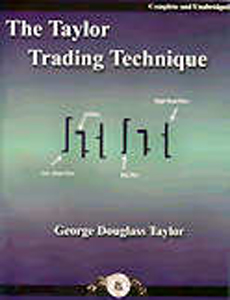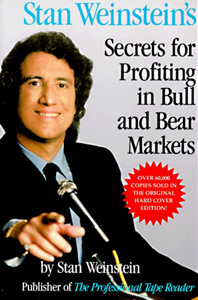You can read more Trading and Investment definitions here.
ALL ORDINARIES (ALL ORDS) – Measures the level of share prices at any given time for a sample of major companies listed on ASX to determine the overall performance of the sharemarket. Stock exchanges in other countries have similar indices, eg. Dow Jones Industrial Average (New York), FTSE (London) and Nikkei Dow (Tokyo).
ANNUAL REPORT – In the context of the Australian sharemarket, the annual report is a financial report or statement issued by a publicity listed company to its shareholders. The annual report contains profit and loss statements, balance sheet and a statement of cash flow, as well as notice of the Annual General Meeting (AGM) and business resolutions to be discussed.
ASIC – Acronym for Australian Securities and Investments Commission, the government body responsible for regulating companies, the issue and sale of shares, trust units, company borrowings, investments, advisers and dealers, in accordance with the Corporations Act 2001 (Cth).
AT LIMIT – An order that places a limit on either the highest price that may be paid for shares or the lowest price that may be accepted for sale.
AT MARKET – An order to buy or sell shares at the market price at the time the order is given. Similar to “at best” which is an order to buy or sell at a price to be determined at the broker’s discretion.
BEAR MARKET – When the share prices are falling sharply and experts expect further falls.
BID – The price at which someone is prepared to buy shares.
BLUE CHIP – Shares, usually highly evaluated, in a major company known for its ability to make profits in good times and bad, and with reduced risk of default.
BONUS SHARES/BONUS ISSUE – Additional shares that are issued by the company to existing shareholders at no charge and usually in a pre-determined ratio to the number of shares already held.
BROKERAGE – Fee paid by a client to a stockbroking firm for the buying or selling of shares.
BULL MARKET – A term for when the market is buoyant and share prices are generally rising.
BOND – A debt security, usually issued by a government, semi-government body or a company to raise money. Holders of the bond have lent money for which they receive a fixed rate of interest over a set period of time. The bond is repaid with interest on the predetermined maturity date. Bonds can be traded on the sharemarket.
CAPITAL – Funding for investment in capital assets or to operate a business. Also refers to the value of an investment in a business, or in an assets such as property or shares.
CAPITAL GAINS TAX (CGT) – Tax on the profit from the sale of capital assets such as shares.
CHESS – The Clearing House Electronic Sub-register System, which provides the central register for electronic transfer of share ownership, that is operated by a wholly owned subsidiary of the Australian Stock Exchange.
COMPANY REPORT – Under the Corporation Act 2001 (Ctv), a listed company must provide a range of reports. These reports include half yearly reports, preliminary final reports as well as annual reports.
CONTRACT NOTE – A written document confirming that a transaction has taken place between two brokers or a broker and a client which details the costs, type and quantity of shares traded.
CONTRIBUTING SHARES – Shares that are not fully paid.
COUPONS – An interest payment that occurs one, two or four times a year.
DEBENTURES – A loan to a company at a fixed rate of interest and for a fixed term, usually one to five years. The debenture is secured by a trust deed over an asset, or assets, of a company.
DEFERRED – Shares with the notation ‘d’ are the result of a reconstruction of the company’s share capital.
DIVERSIFICATION – Spreading investments over a variety of investment categories in order to reduce risk. You may also invest in different countries to spread your risk.
DIVIDEND – Distribution of part of a company’s net profit to shareholders. Usually expressed as a number of cents per share.
DIVIDEND IMPUTATION – The tax credits passed on to shareholder who receives a franked dividend. Under the provisions of the Income Tax Assessment Act, imputation credits entitle investors to a rebate for tax already paid by an Australian company.
DIVIDEND RATE – The dividend shown as cents per share. This figure may be followed by ‘f’ which means fully franked or ‘p’ which means it has only been partly franked.
DIVIDEND YIELD – The dividend shown as a percentage of the last sale price for the shares.
EQUITIES – In sharemarket terms, equities are a synonym for shares and represents part-ownership of a company, as distinct from debt securities such as bonds and debentures. From a business perspective, equities represent the total interests of parties in the assets of that business entity.
FACE VALUE – The amount at which securities are issued.
FLOAT – The initial raising of capital by public subscription to securities, such as shares offered on the sharemarket.
FRANKED DIVIDEND – A dividend paid by a company out of profits on which the company has already paid tax. The investor is entitled to an imputation credit, or reduction in the amount of income tax that must be paid, up to the amount of tax already paid by the company.
FUTURES – A standardized, transferable, exchange-traded contract that requires delivery of commodity, bond, currency, or share index, at a specified price, on a specified future date.
HIN – A Holder Identification Number is allocated by your stockbroking firm when you buy shares if you nominate the firm as your sponsor in CHESS.
HYBRID – A term or classification encompassing securities that have both debt and equity characteristics.
IRS – Interest Rate Security. An interest rate security is simply a security that pays a fixed or floating rate of return. The issuer usually promises to pay you a specified rate of interest per annum over the life of the security and to repay the principal at maturity. They are generally called Bonds or Hybrids.
LIQUIDITY – Being able to convert assets into cash easily, quickly and with little or no loss of capital. A liquid market is a market with enough participants to make buying and selling easy.
LISTED COMPANY – A company which has agreed to abide by the ASX Listing Rules so that its shares can be bought and sold on ASX.
MARKET CAPITALISATION – The total number of shares on issue multiplied by their market price. This can be applied to work out the market value of a single company or of the value of all the companies listed on an exchange.
MARKET PRICE – The prevailing price of shares traded on the Australian Stock Exchange. May be the last price at which the shares traded, or the most recent price offered or bid for the shares.
NEW ISSUE/IPO/FLOAT – A new issue, that can also be referred to as an Initial Public Offering (IPO) or float is the first offering of shares from a company to the public. New issues are often used to raise capital to finance new business ventures, expansion of operations and to sustain current activities.
OFFER – The selling price at which someone is prepared to sell shares.
OPTIONS – The right to take up certain shares on specified terms within or at a specified time.
PRICE-EARNINGS RATIO – Shows the number of times the rice covers the earnings per share.
PRICE RANGE FOR DAY/WEEK – As it suggests, it is both the highest and lowest price at which a share is traded over the course of a day or week.
PROSPECTUS – The document issued by a company or fund setting out the terms of its public equity issue or debt raising. This provides the background and financial and management status of the company or fund, subject to the requirements of the ASX Listing Rules and the Corporations Act 2001 (Cth).
RIGHTS ISSUE – A privilege granted to shareholders to buy new shares in the same company, usually below the prevailing market price.
S&P/ASX 200 – The investable benchmark for the Australian equity market. The S&P/ASX 200 is comprised of the S&P/ASX 100 plus an additional 100 stocks.
SEATS – This is an acronym for Stock Exchange Automated Trading System, which is the electronic system provided for trading on ASX.
SHARES – A share is simply a part ownership of business.
SECURITIES – A general term applied to all shares, debentures, notes, bills, government and semi-government bonds, etc.
SETTLEMENT PERIOD – The period when the business is done in an exchange,
SRN – A Security-holder Reference Number is allocated for identification purposes when you buy shares in a company and nominate to hold your shares on a sub-register.
STOCK QUOTE – A list of prices for a stock at a particular point during the trading day. Used to be quoted in fractions, but now most exchange use decimals.
T+3 – T+3 means that the delivery of shares to the stock exchange and exchange of money should take place within three business working days after the trade has been executed.
UNDERWRITER – An underwriter guarantees to the company that the funds sought will be raised and any shortfall will be taken up by the underwriter.
WARRANTS – Warrants are financial instruments issued by banks, governments and other institutions and are traded on ASX’s equities market. Broadly split into products with investment purposes and those for trading purposes, warrants may be issued over securities, a basket of securities, a share price index, currencies or commodities.




